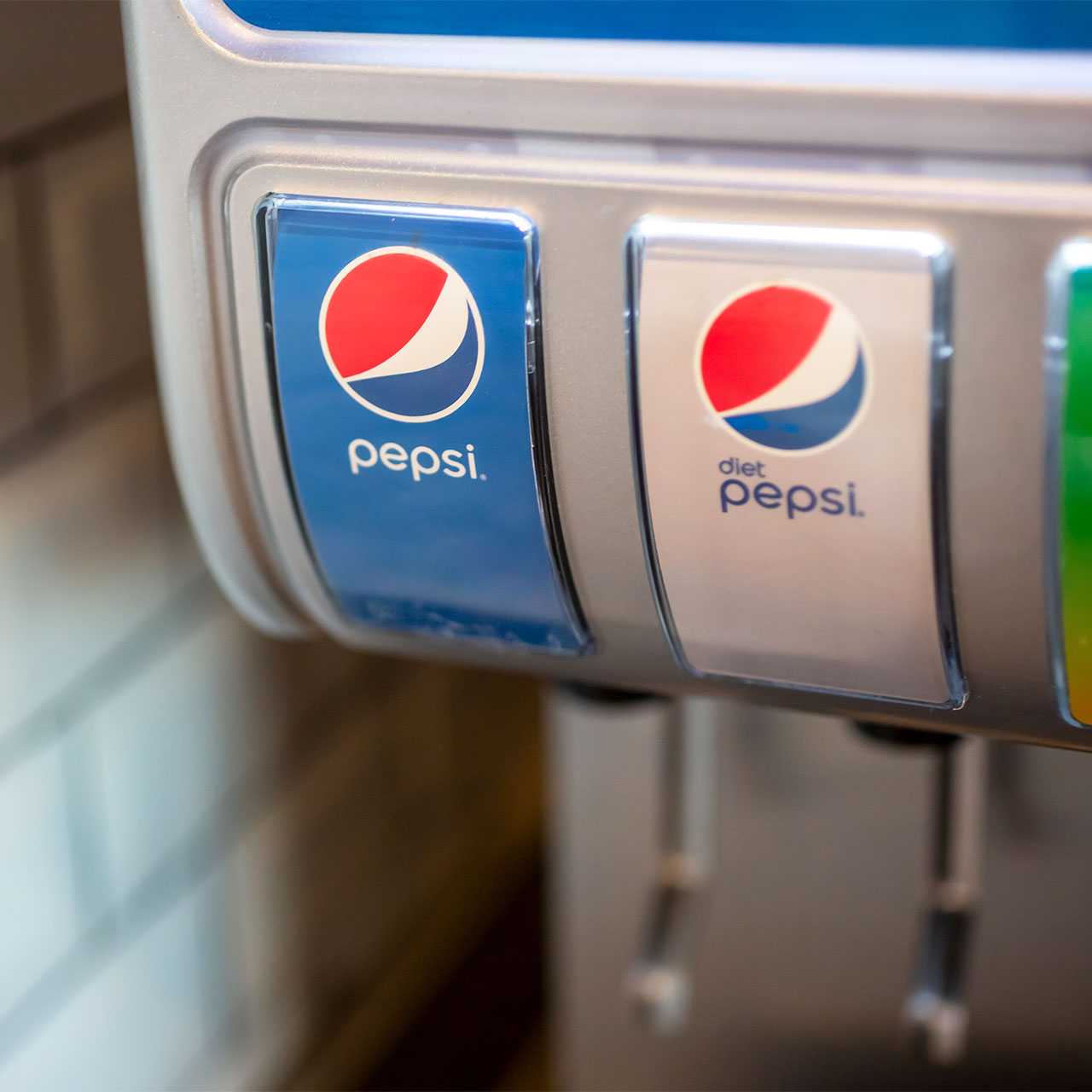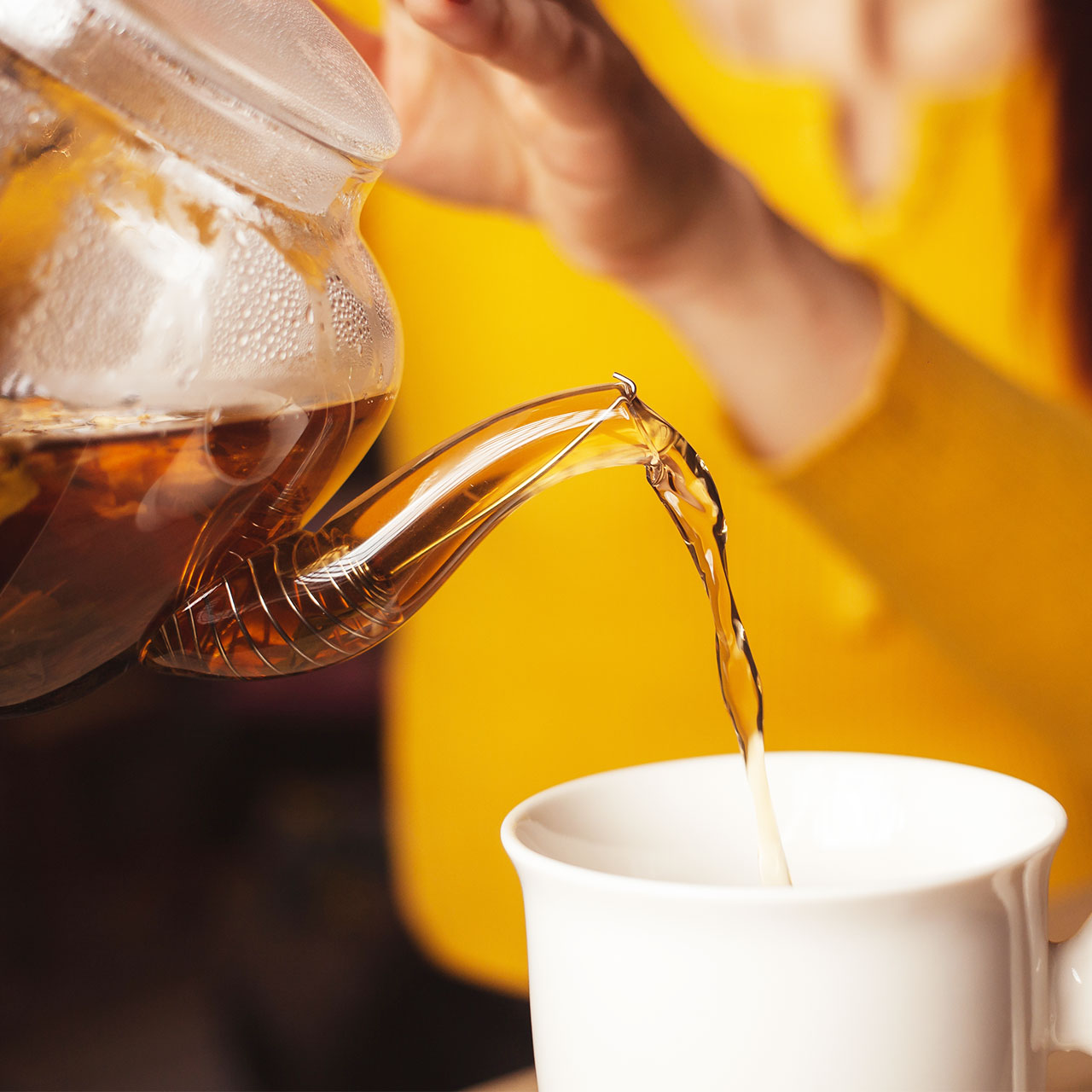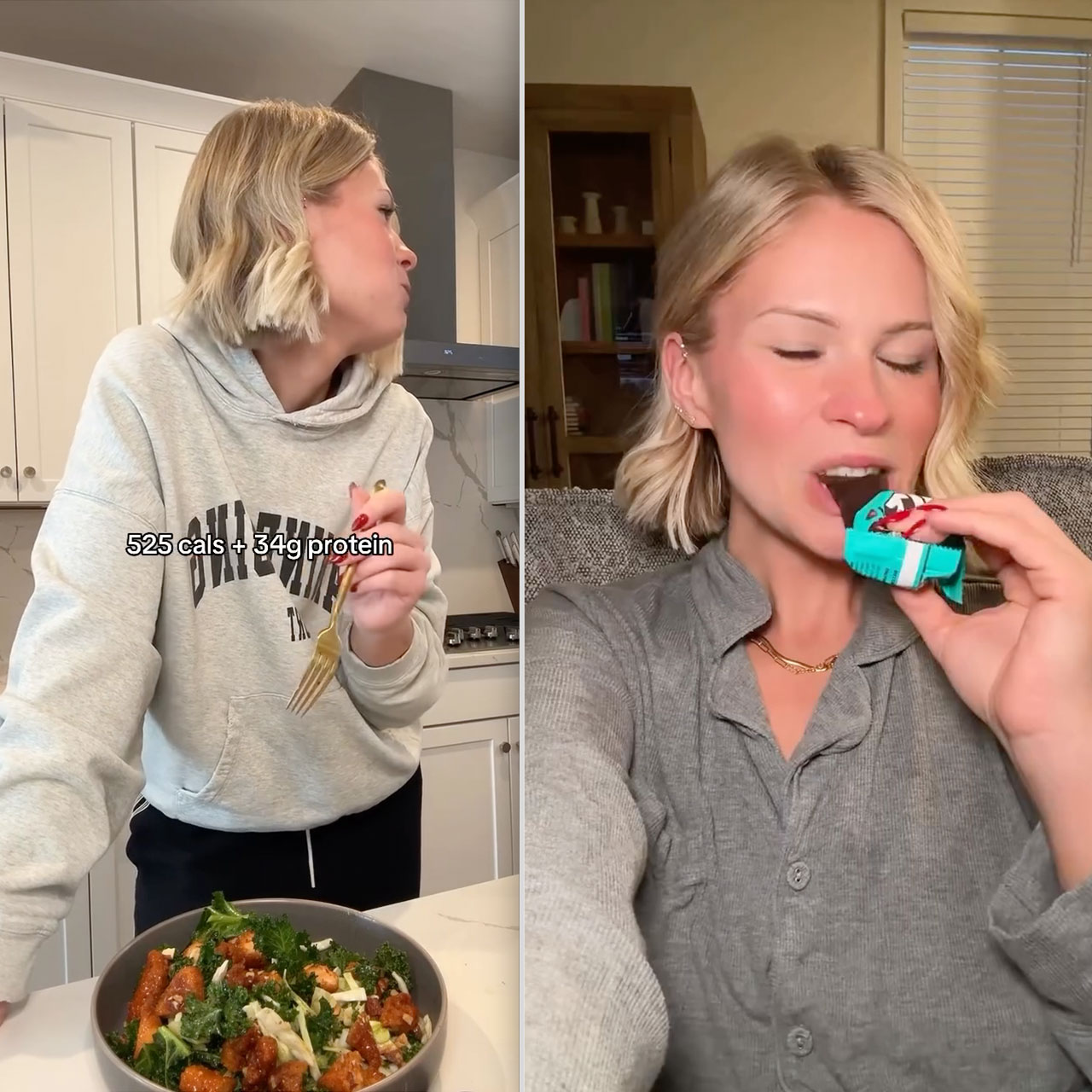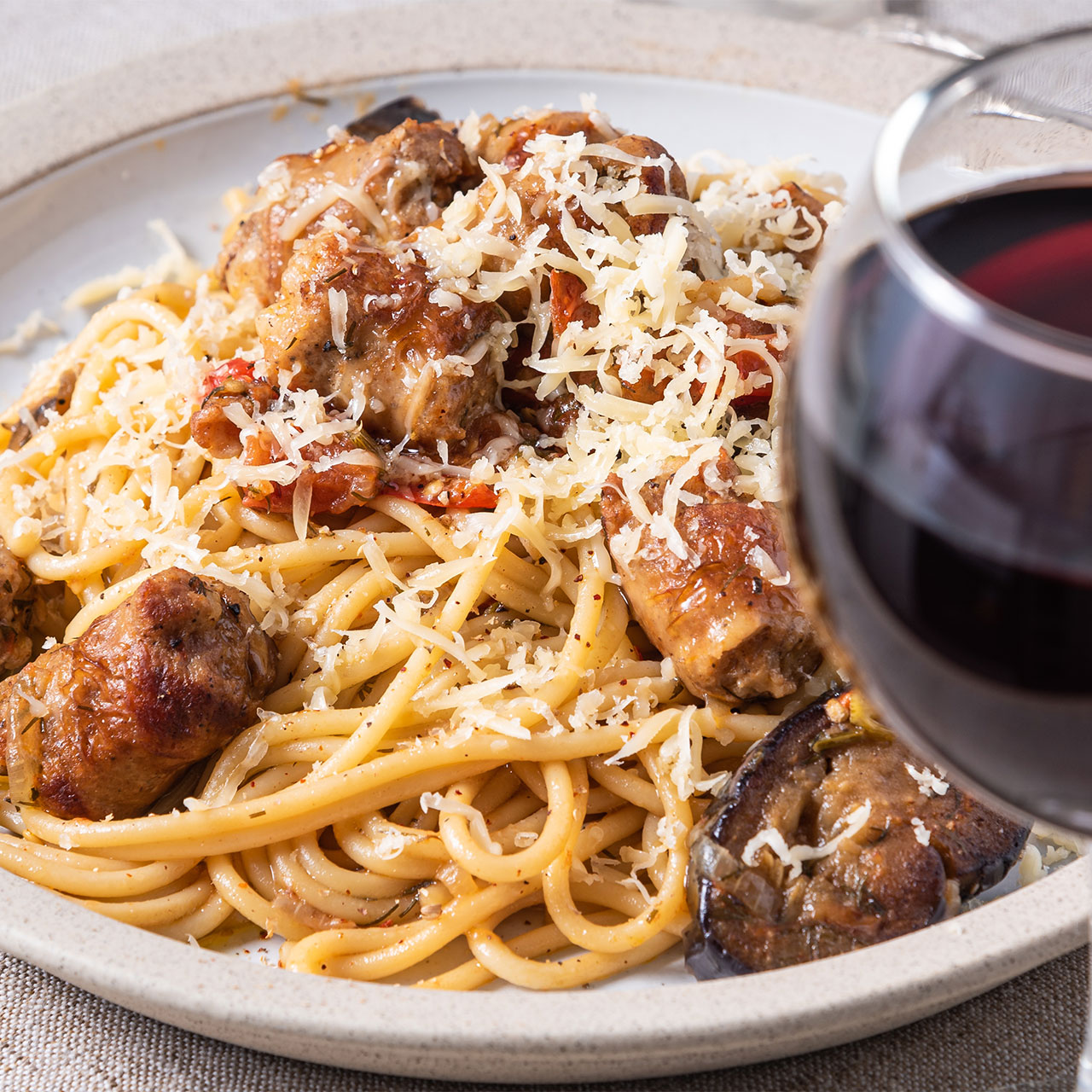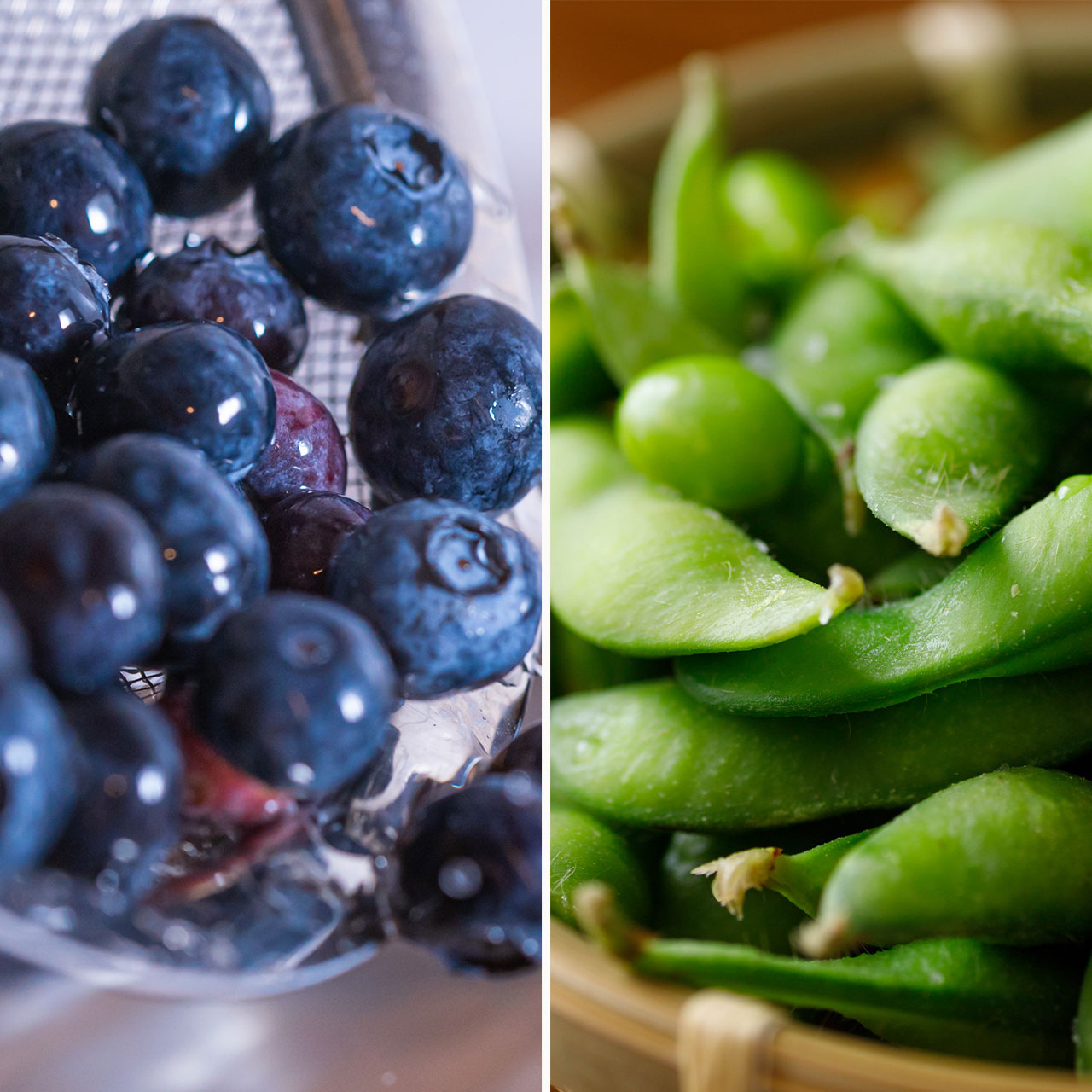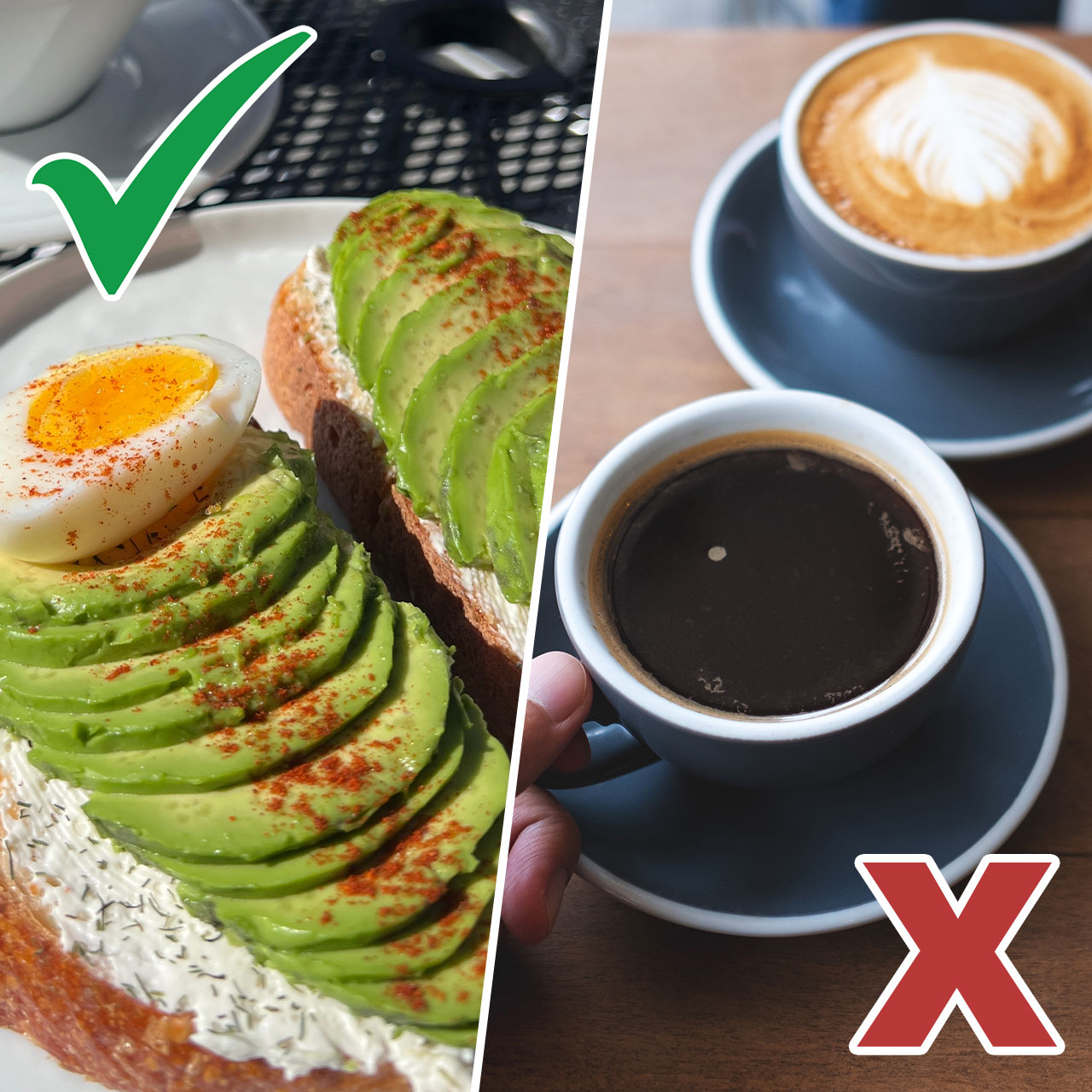While navigating your weight loss journey, there are a few obvious culprits most people know to avoid: sugary sodas, greasy fast food, salty potato chips—the list goes on. But if you’re finding it difficult to shed the last few unwanted pounds, it may be time to dig deeper (in your pantry, that is) and cut out some less commonly warned against foods. In fact, many seemingly “healthy” foods could secretly be working against your weight loss goals.
If you’re fighting to lose that extra flab, don’t fret. We’re helping you out with a list of a few unexpected offenders. We spoke to Michelle Saari MSc, RD from EHealth project and Catherine Gervacio, registered dietitian and nutrition writer for Living.Fit to warn against six surprising options that may be holding you back: fat-free flavored yogurt, cereal (even those that seem healthy), granola bars, and more. Find all of their warnings below.

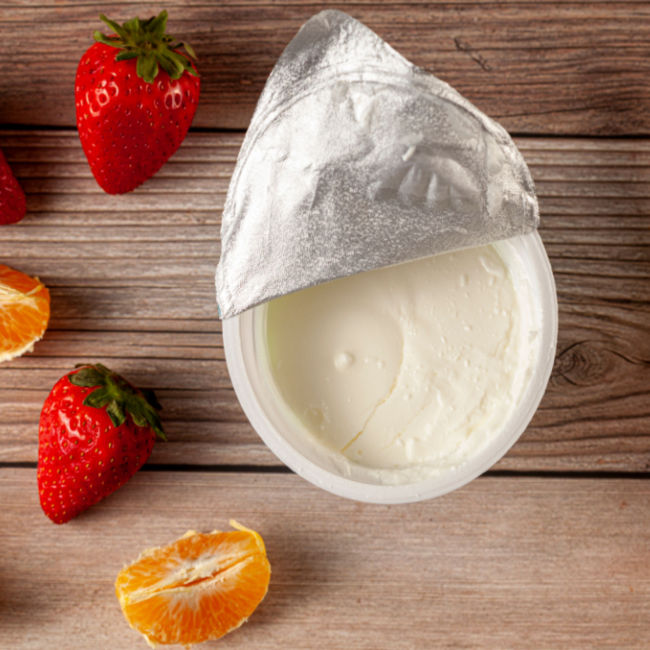
1. Fat-Free Flavored Yogurt
Fat-free flavored yogurts, although often perceived as a healthier choice, may inadvertently spike blood sugar levels and lead to weight gain. While these yogurts are marketed as low in fat, they often compensate for taste by adding significant amounts of sugar. The high sugar content, combined with the absence of fat, can lead to a rapid spike in blood sugar, triggering an insulin response that may promote fat storage. Additionally, the lack of fat can compromise the feeling of satiety, potentially leading to overeating.
"Despite being marketed as a healthier alternative, a typical 6 oz serving of fat-free flavored yogurt can contain up to 25 grams of sugar and 100-150 calories. The high sugar content, used to enhance flavor in the absence of fat, can cause rapid blood sugar spikes and contribute to weight gain due to the excess calories. Fat can actually help to leave you satiated for a longer period of time, so skip the fat free yogurts," Saari says.
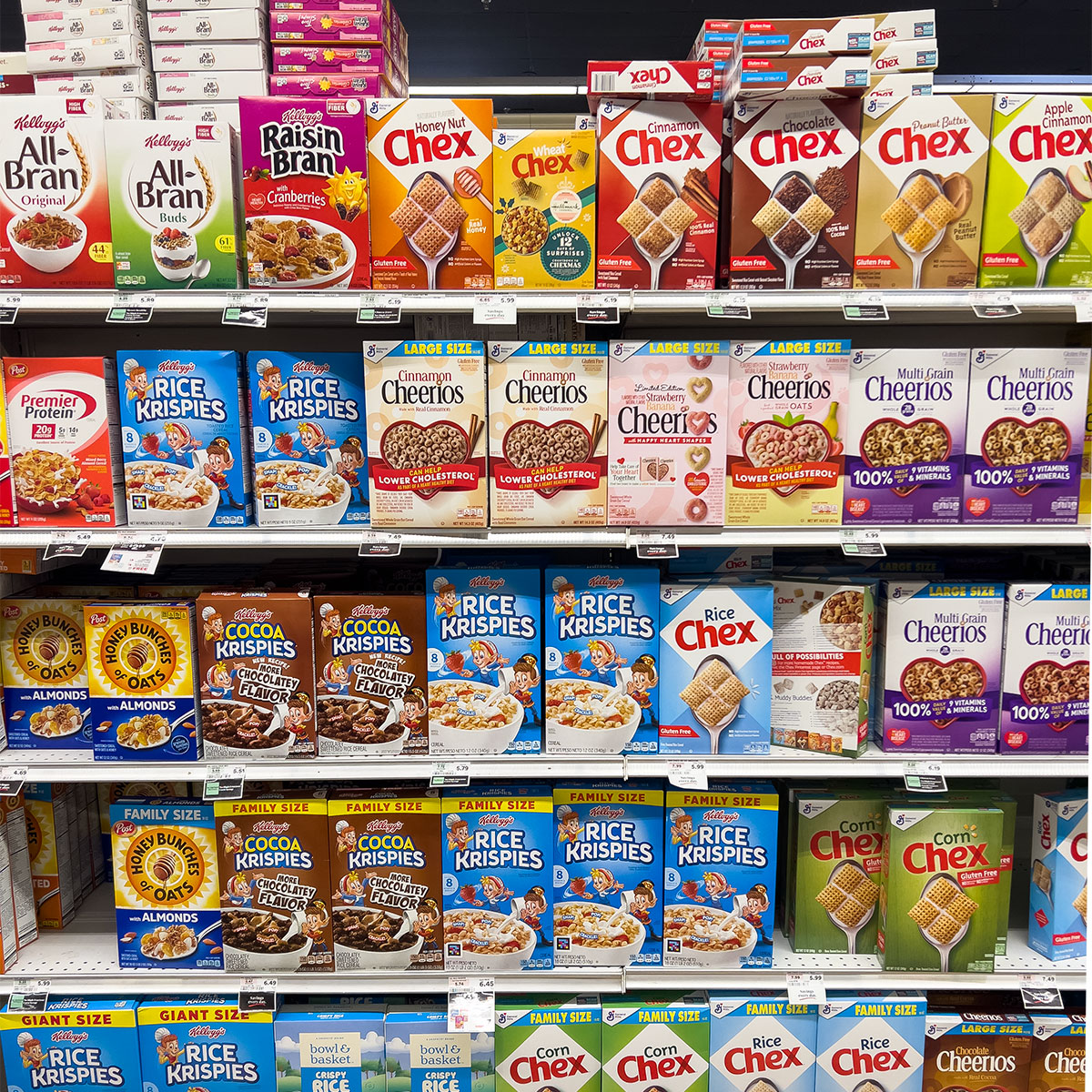
2. Breakfast Cereal
While many perceive cereals labeled as "healthy" to be a nutritious breakfast option, some can contribute to spiking blood sugar levels and potential weight gain. Certain cereals that seem better for you may actually harbor hidden sugars and refined carbohydrates, which can lead to a rapid increase in blood glucose levels upon consumption. This spike triggers an insulin response that, over time, may contribute to weight gain and insulin resistance.
Saari says, "Many cereals labeled as healthy, including those with added fruits or flavors, contain 10-20 grams of sugar and 200-300 calories per cup. Despite their health-oriented branding, the added sugars and low fiber content can cause rapid increases in blood sugar and contribute to a higher overall calorie intake."
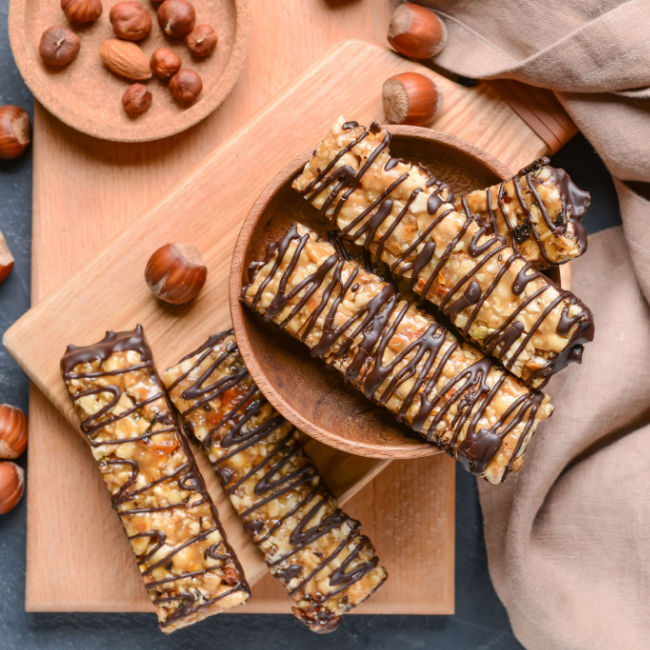
3. Granola Bars
Despite being marketed as healthful choices, many granola bars are laden with refined carbohydrates, sugars, and an assortment of additives. These seemingly innocuous snacks often harbor high levels of refined sugars, syrups, and artificial sweeteners to enhance flavor and prolong shelf life.
"They are popularly known as a healthy food option, but many granola bars contain high amounts of refined sugars, syrups, and additives to enhance flavor and shelf life. These can contribute to spikes in blood sugar levels and promote weight gain if consumed regularly. Be careful and always check the nutrient label and the ingredients list for hidden sugars," Gervacio says.
She notes that it's "best to make your own granola bars using whole grains, nuts, seeds, and natural sweeteners like maple syrup. You can also use Stevia or Monk fruit if you want to eliminate added sugar completely from your diet."
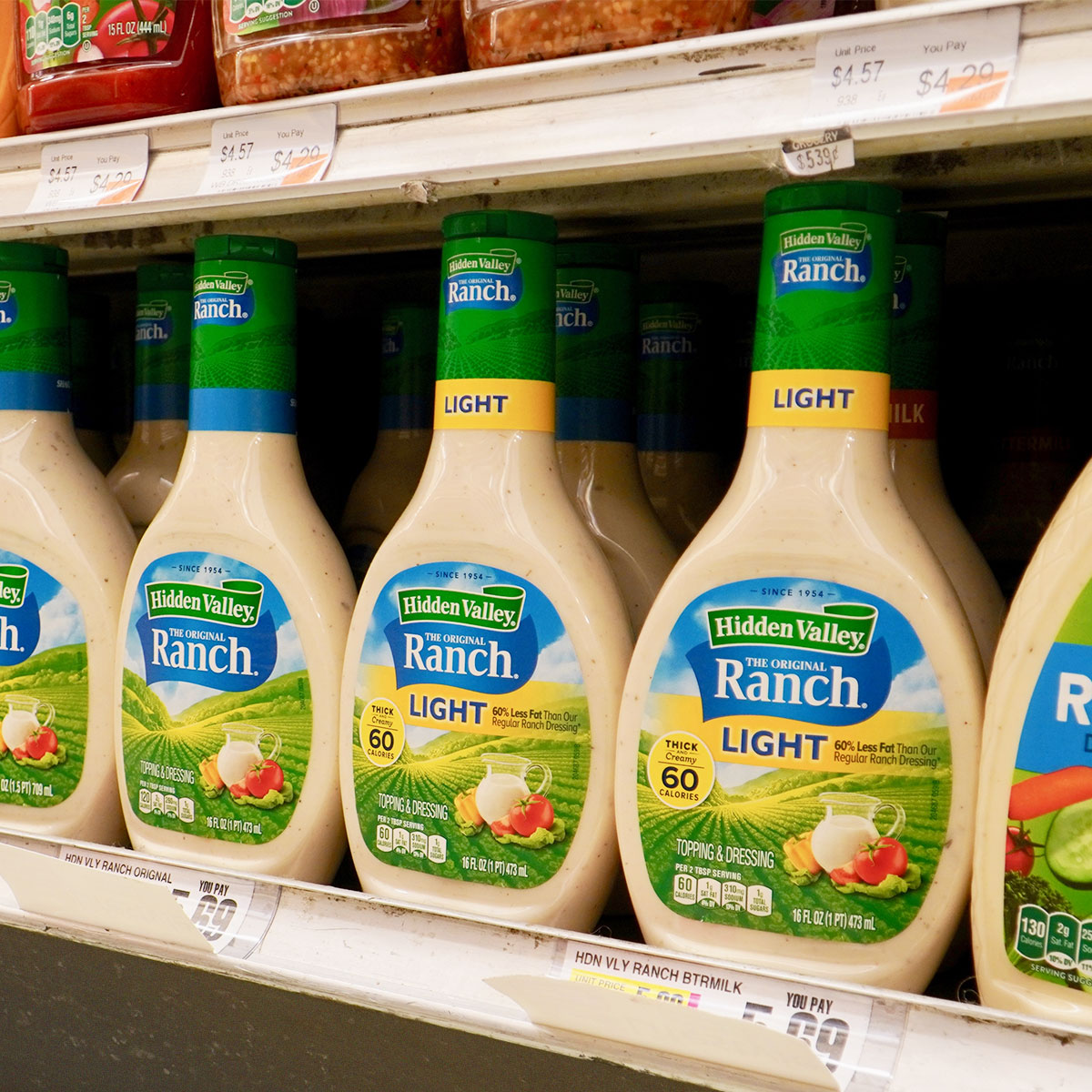
4. Low-fat Salad Dressings
Low-fat salad dressings, often perceived as a guilt-free way to enjoy salads while cutting calories, may conceal a less-than-healthy reality beneath their "light" image. Despite their reduced fat content, many low-fat salad dressings compensate for flavor by incorporating refined carbohydrates, sugars, and an array of additives.
Gervacio elaborates further and notes that "many low-fat salad dressings contain added sugars, high-fructose corn syrup, and artificial flavors to compensate for the reduced fat content. These additives can negate the health benefits of consuming salads and contribute to weight gain and inflammation."
Making your own dressing is actually very simple and doesn't need extravagant ingredients. "It's always ideal to make your own meals to ensure natural flavors with no added sugars. Make an easy salad dressing using olive oil, vinegar, lemon juice, herbs, and spices for flavor," Gervacio recommends.
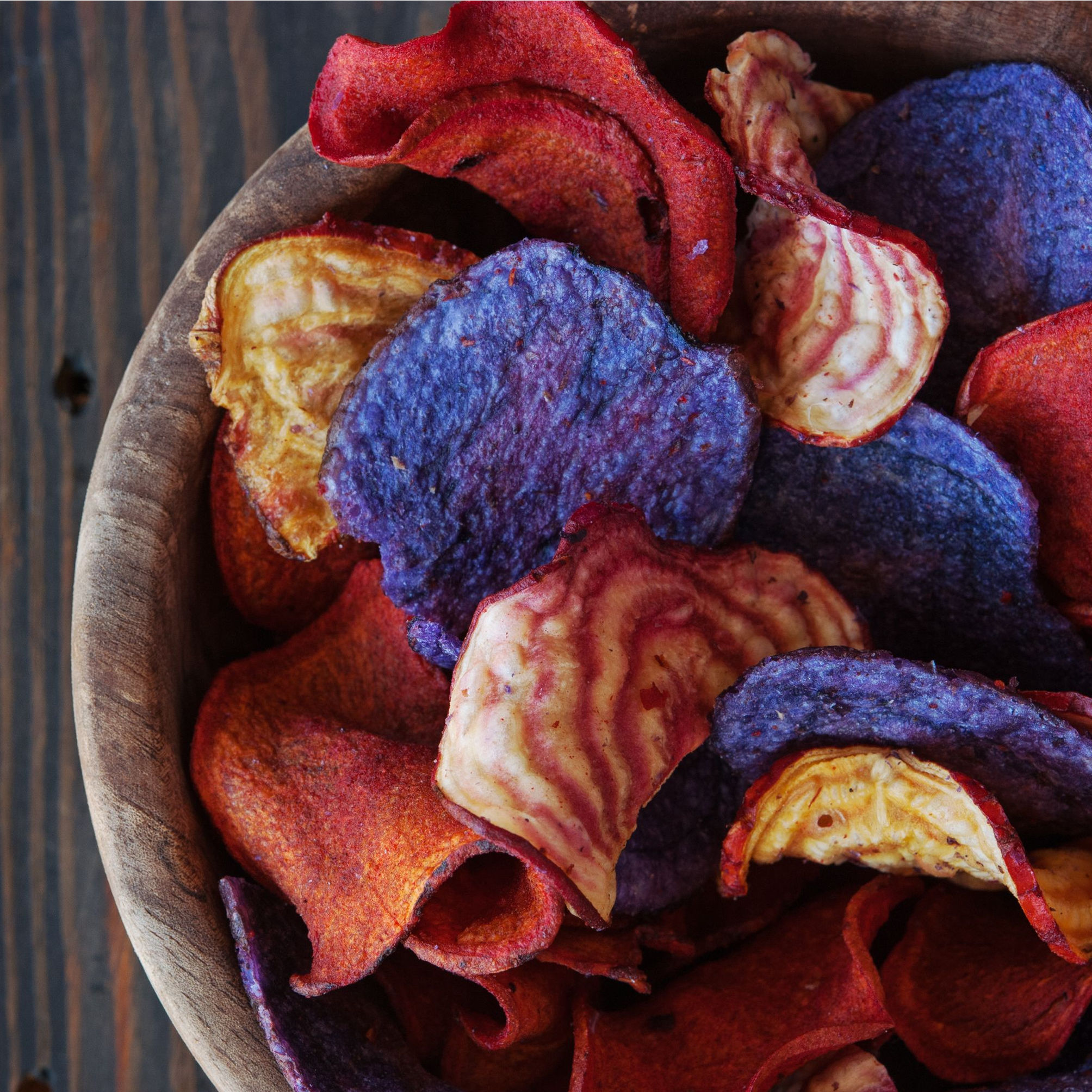
5. Vegetable Chips
While their vegetable origins may suggest a virtuous snacking option, many vegetable chips are riddled with processed ingredients and additives. Despite the inclusion of vegetables in their name, these chips commonly rely on starchy fillers and processed oils to achieve their crispy texture, sacrificing nutritional integrity in the process.
Gervacio says "these chips may seem like a healthier alternative to regular potato chips since they are made from vegetables. However, many of these products are fried in unhealthy oils and coated with refined sugars, additives, and excessive salt to enhance flavor. This can lead to weight gain, high blood pressure, and other health issues associated with excessive sodium and sugar intake."
But just like homemade granolas, you can make healthier chips at home, she says. "It's better to make your healthy chips! Use sweet potatoes, beets, or kale, and bake them with a small amount of olive oil and herbs for flavor."

6. Sports drinks
These beverages typically contain high levels of refined sugars or artificial sweeteners to enhance taste, providing a quick energy boost but also contributing to sugar spikes and crashes. Additionally, the inclusion of artificial colors, flavors, and preservatives further diminishes their nutritional value.
Gervacio highlights that sports drinks "are known as essential for hydration and electrolyte replenishment, especially after exercise. However, they typically contain high amounts of added sugars, artificial colors, and flavors, which can contribute to tooth decay, weight gain, and insulin resistance if consumed excessively. Always check the nutrient label and the ingredients list to make sure.
For a healthier alternative that can still hydrate you, she suggests "drinking coconut water or electrolyte-enhanced water for hydration and replenishment after exercise, instead of sugary sports drinks." Got it!


